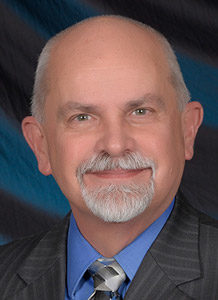By Lonnie Wilkey
lwilkey@tnbaptist.org
 ROGERSVILLE — Randy Pressnell is no stranger to bivocational ministry.
ROGERSVILLE — Randy Pressnell is no stranger to bivocational ministry.
He served as a bivocational pastor early in his ministry and later on while he served on the faculty and staff of Clear Creek Baptist Bible College in Pineville, Ky.
After retiring as the full-time pastor at First Baptist Church, Oneida, in January, Pressnell stepped into a new role on May 1 when he became the bivocational ministry specialist for the Tennessee Baptist Mission Board.
“I am familiar with their many hats they have to wear and have a good sense of what they go through,” Pressnell said.
While COVID-19 has caused all churches, and especially pastors, to make adjustments in how they do their ministries, Pressnell believes that bivocational pastors might have had an advantage when the worldwide pandemic struck in March.
“I have seen a resiliency among bivocatioanal pastors,” he observed.
“Many of them have perhaps handled this crisis even better than many vocational pastors because they are accustomed to having to be flexible, Pressnell continued. “The entire nature of being a bivocational minister is being flexible. They do that every week.”
Though he knows some bivocational pastors have lost their secular jobs, many of the pastors he has spoken with are still working both positions and this brings an added stress and pressure to them, Pressnell said.
By working in a secular job, they risk being exposed and then exposing their families and church families to the potentially deadly virus, he said.
As a result, the pressure can build up and bivocational pastors don’t have the peer network that vocational pastors have because they have less time to attend meetings where they can visit and get support from fellow bivocational pastors, Pressnell observed.
“A lot of bivocational pastors don’t have a peer minister encourager in their life,” Pressnell said. “They are lonely and feel like they are on their own. I hope we can continue to let them know that the Tennessee Baptist Mission Board loves bivocational pastors and that they are not alone. We are there for them. Their directors of missions are there for them.”
In the meantime, Pressnell suggested that the churches served by bivocational pastors need to provide the emotional and spiritual support they need.
“Many times a congregation thinks the pastor is there to serve them but the congregation also has a responsibility to help their pastor,” he maintained.
Pressnell used the acrostic HELP to give churches ideas on how they can support their pastors as the COVID-19 crisis continues across America.
H — The congregation needs to inquire about the pastor’s health — physically, emotionally and spiritually. Ask how they are and their families. Check on pastor’s extended family such as their parents, he suggested. Ask your pastor if he is leaning on the Lord and not trying to carry it all himself. Let your minister know you care about not only his health but the health of his family. That is important to the pastor, Pressnell said.
E — Encourage your pastor. Be a Barnabas. Let your pastor know you are there for them. If the rod gets too heavy parting the waters, help him hold the rod of God up. Also, encourage his wife and family. Sometimes, they feel neglected. Encourage them as well, he suggested.
L — Love your pastor. You do that by your actions such as providing gift cards or items they can use, he noted. “When you are loving on somebody, take them a loaf of homemade bread or banana pudding to just say, ‘We love you pastor.’ ” In addition, many ministers have not been able to get some rest and relaxation during the COVID crisis. “Giving your pastor a weekend off with pay and providing a supply pastor is a good way to show your love.”
P — Pray for your pastor. That is the most important thing you can do, the TBMB specialist stressed. “Don’t just give lip service. Every day, lift him up in this spiritual and physical battle that COVID-19 presents to all pastors.”
Pressnell stressed the importance of prayer.
All pastors are carrying an increased load during this pandemic, he noted. Decisions like “do we gather in person, or the parking lot or church yard, or have online services only” must be made. “The pastor tries to carry that load. It’s a spiritual battle.”
He added that if churches can only do one of the four letters, it must be prayer. “Pastors need to know they have the support of their congregation and that they do not need to carry the load alone.” B&R

